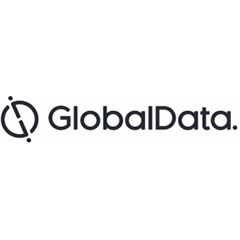Ranging from ‘storage’ to ‘rooftop solar’, Power Technology lists the top five solar power terms tweeted in Q3 2019, based on data from GlobalData’s Influencer Platform. These terms are trending industry discussions happening on Twitter by key individuals (influencers), as tracked by the platform.
Storage – 238 mentions
Solar power with storage capacity was one of the top topics discussed during Q3. Battery energy storage is poised to play a vital role in the US. With the cost of solar plus storage solutions declining, mini self-sufficient electricity grids are emerging. These have the capacity to power small communities.
On 10 July, @SG_SEIA tweeted: “#Solar + Storage = peanut butter+chocolate. Amirite? ‘An increase in solar deployment, which NREL expects could be enabled by the deployment of storage for peaking capacity, pushes the practical potential for four-hour storage to 50 GW”, which saw 19 likes and one retweet.
PV – 215 mentions
The increase in demand for solar photovoltaic (PV) modules and the latest trends in the PV market were widely discussed across twitter during the quarter.
The industry is moving from multi to mono modules, with bifacial mono modules gaining popularity in the market. These trends were highlighted during the Solar Power International 2019 held in September. The need to diversify distributed and centralised renewable sources to ensure reliability was also highlighted.
On 26 July, @SolarFred tweeted: “Global PV market: 114 GW to be installed in 2019, with continued growth onwards http://j.mp/2Y4FGVh”.
Act On Climate – 180 mentions
Renewable energy projects and solutions that can address the climate crisis facing the planet were highlighted during the quarter. Noor Ouarzazate, a Moroccan power plant that generates enough electricity to power more than one million homes, was among popular discussions.
Similarly, a World Economic Forum (WEF) video shared by Mike Hudema, a Greenpeace activist based in Canada, depicts how Nigeria is building 10,000 mini solar grids while Japan has 73 of the world’s 100 biggest floating solar farms.
On 8 July, @MikeHudema tweeted another WEF video showing that China is at the forefront of solar panel installation and features the world’s largest floating solar farm. His tweet, which attracted 663 likes and 403 retweets, said: “These four countries are already running on almost 100% #renewableenergy. We have solutions to #climate crisis. What’s missing is the political will to implement them.#ActOnClimate #climate #energy #tech #solar #wind #renewables @JustinTrudeau”.
Climate Change – 128 mentions
The solar industry’s role in tackling climate change was another key topic of discussion during Q3. The extension of Sections 48 and 25D solar investment tax credits (ITC) is expected to foster industry development and address climate change challenges, according to Abigail Ross Hopper, president and CEO of the Solar Energy Industries Association.
On 11 September, @SolarFred tweeted: “@SenKamalaHarris, the #solar ITC has helped create American #jobs and is the best tool we have to address climate change. Please support the Renewable Energy Extension Act!”, which saw two likes.
Rooftop Solar – 113 mentions
Rooftop solar installations, and the need to increase installations to address energy demand and climate change, was a much discussed topic.
On 17 July, @CarlSiegrist tweeted: “What is rooftop solar really worth? https://pv-magazine-usa.com/2019/07/17/could-utilities-and-residential-solar-become-energys-new-odd-couple/ … @TSylviaMedia via @pvmagazineusa #solar #energy #CleanEnergy”, which attracted four likes and five retweets.
About GlobalData
4,000 of the world’s largest companies, including over 70% of FTSE 100 and 60% of Fortune 100 companies, make more timely and better business decisions thanks to GlobalData’s unique data, expert analysis and innovative solutions, all in one platform. GlobalData’s mission is to help our clients decode the future to be more successful and innovative across a range of industries, including the healthcare, consumer, retail, financial, technology and professional services sectors.



























